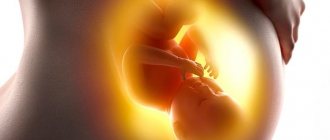925
Pregnancy is a period when any dental procedures are performed only for serious reasons. Orthodontic treatment with braces is no exception.
As observations have shown, orthodontic construction can provoke the development of a number of complications that have a negative impact not only on the mother’s body, but also on the fetus .
Braces and pregnancy: if you have already started orthodontic treatment
Already at the stage of orthodontic treatment, pregnancy is not a reason for removing the braces. However, for the predicted result of treatment and oral health during this period, it is especially important to follow just a few rules:
- adequate home oral hygiene;
- regular preventive cleaning by a hygienist;
- preliminary sanitation - ideally, both before pregnancy and before braces, the oral cavity should be sanitized;
- have the latest x-rays available to monitor the condition over time.
Pros and cons of wearing braces during pregnancy
Positive aspects of treatment with braces during pregnancy:
- teeth are straightened faster due to the natural softening of bone tissue;
- bearing a child is a psychologically comfortable time, since a woman visits crowded places less often, communicates less, and therefore does not have complexes about the “glands” in her mouth.
This is where the list of pros is limited, but the list of cons is extensive:
- accelerated destruction of enamel;
- difficulties in brushing teeth, as a result, the risk of gingivitis increases;
- constant power monitoring;
- regular (at least 2 times a month) visits to the doctor;
- unsticking of bracket units due to dry enamel;
- improper movement of molars due to decreased bone density.
A woman who needs more rest during pregnancy will have to be constantly “on guard,” since at any moment the braces system can provoke a dental problem.
Caries - as one of the consequences of treatment with braces during pregnancy
What to do if you have a toothache during pregnancy?
You can treat your teeth during pregnancy. If dental treatment is necessary, it is enough to follow these rules:
- Planned treatment is carried out only in the second trimester of pregnancy. Treatment in the first trimester is undesirable due to the fact that at this time the processes of fetal attachment and organ formation occur, and in the third trimester, anesthesia and medical manipulations can provoke premature birth.
- Therapeutic dental treatment under local anesthesia is possible with written permission from the gynecologist and in the absence of contraindications.
- Professional oral hygiene is permitted using ultrasound and delicate powder blasting.
- Tooth extraction is possible only in case of emergency (acute pain) and with adequate high-quality pain relief.
Myth 1: Pregnant women should absolutely not get braces.
Nowhere in dental practice are there any categorical prohibitions on the installation of braces for pregnant patients. However, some doctors still refuse to correct the bite of women in position. So is it possible to correct a bite with braces during pregnancy? We will answer - it is possible, but very carefully, since orthodontic treatment for pregnant women has its own characteristics.
During pregnancy, the amount of useful elements in the mother’s body decreases noticeably - they go to the baby. In addition, hormonal levels change dramatically. Many women complain that fillings fall out and teeth are destroyed. This is why many orthodontists categorically refuse to work with patients who are “in position.” Nevertheless, you can try - but the woman herself needs to be prepared for the following:
- braces may have to be removed if the teeth begin to crumble, caries or gum inflammation actively develops,
- nutrition needs to be seriously adjusted - it must be complete, rich in vitamins,
- oral hygiene will have to be strengthened several dozen times in order to keep the oral cavity clean,
- Vitamins should be introduced into the diet (in consultation with a gynecologist, perhaps even an endocrinologist).
In general, if the expectant mother is not ready for serious work, orthodontists recommend waiting until the baby is born and only then getting braces.
Installation of braces during pregnancy
After the birth of a child, are there any additional recommendations from the dentist?
There is the concept of “active lactation”, this is approximately 6 months after the birth of the child. During this period it is not recommended:
- carry out active sanitation of the oral cavity (some drugs and anesthetics get into the milk and the child’s reaction to such milk is unpredictable);
- use anti-inflammatory drugs, which are prescribed in parallel for planned removal, implantation and prosthetics.
Therefore, they try to postpone all planned procedures for approximately 6 months after birth. Dynamic observation with professional oral hygiene is required once every 6 months with the prescription of remineralizing drugs for use at home
Possible negative consequences
Before installing braces, you should familiarize yourself with the list of negative consequences that can arise at any stage of wearing a corrective structure:
- Due to hormonal changes in the body, the process of correcting malocclusion may not go according to the planned scenario, and the orthodontist will not be able to control the situation due to the impossibility of taking x-rays.
- Due to an adjusted diet, a woman may begin to experience an acute shortage of vital vitamins and microelements. This will negatively affect the health of mother and baby.
- There is a high risk of bone inflammation. Teeth become mobile, the load on them increases. This can lead to changes that can be difficult, painful, and time consuming to treat.
- Due to a lack of microelements, the roots of the teeth can suffer, and the pressure of braces can irreparably change their shape and position.
- Constant stress and nervousness from wearing the structure and preventive examinations and cleanings will lead to a deterioration in the health of the mother, have a negative impact on the fetus and can lead to negative consequences.
You should think about all of the above factors before installing braces, and while wearing them, weigh the possible benefits and harms of continuing treatment.
Changing orthodontic procedures
Wearing braces by an expectant mother requires a change in her usual lifestyle, even if the presence of a medical device does not negatively affect her health:
- Regular visits to the dentist for preventive examinations. Only a doctor can correctly assess the condition of the oral cavity and determine the onset of possible pathological processes
- The doctor replaces the arch of braces in pregnant women less often, so the duration of treatment for malocclusion may increase. To avoid pain in a woman carrying a child, the specialist also reduces the tension of the arc
- Brushing your teeth after every meal. Using a toothbrush for these purposes will not be enough: it is necessary to use special brushes, irrigators, dental floss, elixirs
- Regular monitoring of the condition of the locks of the medical system, immediate contact with a doctor if a shift is detected
Important! If any complaints arise while wearing braces, a pregnant woman should seek help from a specialist. Self-medication in such cases is unacceptable.
What to do if you become pregnant while wearing braces
If pregnancy occurs while wearing braces, then the most reasonable thing would be to “preserve” the results. This will make it possible to maintain the achievements gained and not harm either the expectant mother or her baby. An orthodontist makes transparent silicone aligners based on individual impressions. This discreet design must be worn daily for two to six hours and can be taken off and put on independently.
Important!
Experts categorically do not recommend giving birth with braces.
If you nevertheless decide to leave the system on the teeth, then it is necessary to loosen the tension of the arch and visit the dentist to monitor the process and condition of the orthodontic structure twice as often as is necessary under normal conditions.
Features of installation of orthopedic structures
Many doctors say that you should not wear braces after conceiving a child.
But others believe that if you follow a good treatment plan, take all the necessary vitamins and regularly undergo routine examinations with a doctor, then installing orthodontic structures is quite acceptable.
But such work should only be performed by a qualified specialist in whom the patient can completely trust.
The circumstances are such that during pregnancy the body experiences complex loads under the influence of hormones. This may have a negative impact on the outcome of the bite correction treatment. Although braces are created using innovative technologies, the risk of complications still remains very high.
Damon Q non-ligature braces are one of the newest developments for correcting malocclusion today. It has been proven that wearing this orthodontic structure speeds up the treatment of malocclusion pathologies by 25%.
Another most proven method of correcting malocclusion is the installation of sapphire braces. They do not injure the oral cavity and look very nice.
The doctor always has a large number of arguments in his arsenal regarding not installing braces on pregnant girls.
Braces and pregnancy have their pros and cons, so before installing orthodontic plates, it is important to familiarize yourself with the negative sides in order to be able to prevent bad consequences in the future.
The negative aspects of installing a bracket system are:
- During pregnancy, no one is immune from receiving various kinds of complications. Therefore, it is important to pay special attention to the fact that when correcting your bite, you need to constantly visit a doctor. After all, if this is not done, then this can lead to disruptions in the dynamics of the correction course, which will subsequently lead to further problems;
- Braces when carrying a baby have a very strong effect on bone tissue. This factor cannot guarantee an excellent course of treatment;
- a woman in this position has an unstable emotional background. She has frequent mood swings. Therefore, even orthodontic structures can cause irritation and discomfort. It is important to understand that stress harms the favorable course of pregnancy;
- Every mother should take care of herself during the period of bearing a child. As a general rule, she should eat fruits and vegetables frequently. After installing braces, you have to change your usual lifestyle. Wearing such plates constantly requires changing the arch, which puts pressure on the teeth. As a result, women should not eat solid foods;
During pregnancy, women need more calcium. Therefore, orthodontists believe that a lack of these important elements can have a bad effect on tooth enamel. As a result, wearing orthodontic structures will be quite problematic. Sometimes, when correcting a malocclusion, problems with tooth root resorption may occur;- Before installing braces, it is necessary to remove tartar. This process is painful and stressful;
- Preliminary tests are considered an important factor that confirms the needlessness of installing braces during pregnancy. If an anamnesis was not taken before conceiving the baby, then orthodontic structures should not be installed in pregnant women under any circumstances.
Orthodontists advise not to combine wearing orthodontic appliances and pregnancy due to possible complications. Hormonal imbalance, pain and discomfort that braces cause can cause unnecessary worries for the expectant mother.
All this can have a bad effect on the development of the fetus. If pregnancy occurs while the bite is being corrected, the doctor can choose a good treatment option and decide whether it is necessary to continue wearing braces.
It is best to correct dental problems before conceiving a baby. In this case, the load is evenly distributed on the bone tissue and this promotes good movement of the teeth.
What if pregnancy occurred during treatment with braces?
It also happens that a woman started treatment and did not plan a pregnancy. But conception still happened. What to do then? The answer to this question will be individual for each woman. After all, only a doctor can assess the condition of a woman’s teeth and health in general. Also, whether to remove or leave braces depends on what stage of treatment the expectant mother is at and how far into her pregnancy she is. As a rule, the doctor does not remove braces after learning about his patient’s pregnancy, but adjusts the treatment plan. In some cases, you will have to wear braces longer than planned. If a woman has a lack of calcium in her body, and her teeth begin to crumble badly, then the braces may have to be removed. But many experts do not advise doing this, since the results, according to them, can be simply unpredictable. Those doctors who nevertheless decide to remove braces install retention aligners for the woman. This will allow you to “preserve” the situation in your mouth. And treatment continues in the postpartum period.
But, be that as it may, nothing is impossible. If the treatment process is properly organized, if a woman carrying a child takes a responsible approach to her own health, if she is determined to have a positive result, the outcome will be the best - a happy mother with a beautiful, even smile.
Especially for beremennost.net Olga Rizak
Conservation of procedures
If a specialist discovers pathological changes in the oral cavity during an examination of a pregnant woman wearing braces, the orthodontist decides to remove the medical device.
It is possible to prescribe silicone retainers for pregnant women as a temporary method of treating malocclusion
As a temporary treatment (until it is possible to re-install the system), the doctor prescribes the pregnant woman to wear silicone retainers.
Reference! It is advisable to continue treatment of malocclusion with the help of an orthodontic appliance after the completion of hormonal changes in a woman’s body - after childbirth and the end of lactation.
Possible complications
During the period of bearing a child, a woman’s body suffers from a deficiency of minerals, especially calcium, which is necessary for the normal condition of tooth enamel. Against the background of calcium deficiency, the development of caries is quite common. Gingivitis and periodontitis progress during pregnancy due to hormonal changes in the body.
Against the background of these possible complications, installing braces will only worsen the situation. Increased stress on the teeth will lead to a worsening situation. The displacement of teeth in bone tissue can become uncontrollable.
The expectant mother must weigh the pros and cons before embarking on the correction procedure. If the state of dental health and hormonal levels are unsatisfactory, it is better to refrain from correcting the bite until complete recovery or the end of pregnancy.







